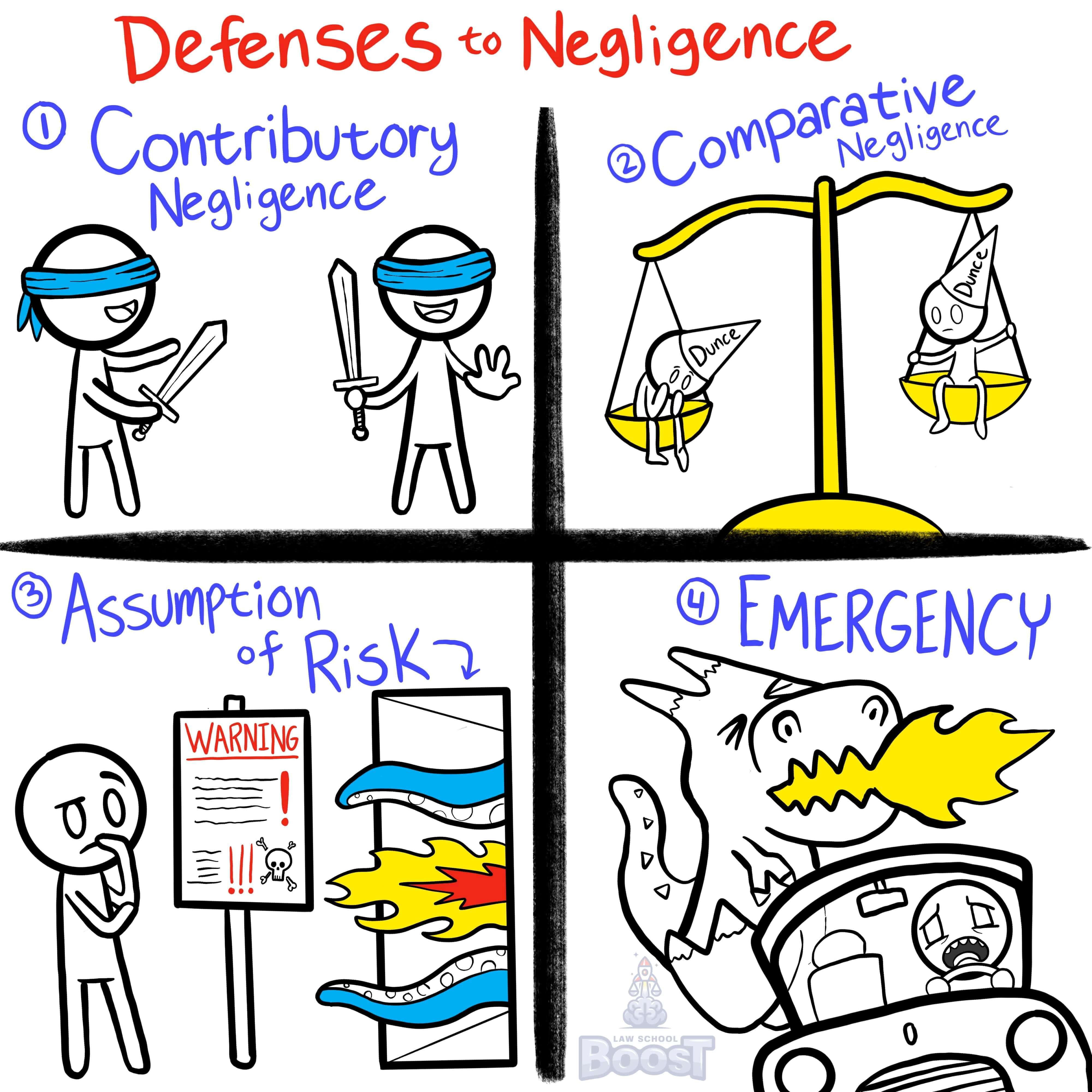👀
Torts • Defenses to Negligence
TORT#058
Legal Definition
Assumption of risk is a defense to negligence. A plaintiff may not recover if they knew of the risk and voluntarily assumed it.
Plain English Explanation
When someone is negligent, and they cause you harm, the law feels that the right thing to do is hold the negligent person accountable and liable for the harm that they caused. However, when the injured party was aware of the risk and decided to accept the risk by participating in an activity or engaging in some way with the negligent party, the law is less sympathetic.
In other words, "risk" is a "probability of harm". When you engage in a risky activity, you aren't agreeing to be harmed — however, you are agreeing that it's possible and you may be harmed, and if you are harmed, then you can't act as if you are a completely innocent victim.
In other words, "risk" is a "probability of harm". When you engage in a risky activity, you aren't agreeing to be harmed — however, you are agreeing that it's possible and you may be harmed, and if you are harmed, then you can't act as if you are a completely innocent victim.
Hypothetical
Hypo 1: Bob and Sam decide to play a game of paintball. They both get their paintball gear and meet up at a local paintball field. When the match starts, Sam adjusts his gun and accidentally shoots Bob in the neck causing extreme pain. Before Bob gets hit, Bob aims for Sam's ear and hits him directly in the ear, causing Sam's eardrum to rupture. Result: Sam accidentally shot Bob in the neck, so you would assess this under negligence. After your assessment, though, you would point out that Sam could argue that Bob assumed the risk because it is reasonable that in a paintball match, you could be shot anywhere, and that Bob (especially as an experienced paintball player who owns his own gear) should have been aware that a paintball flying at him may hit him in a sensitive area, like his neck.
On the flipside, Bob's actions against Sam were intentional, so negligence and its defenses don't apply. Rather, you would assess Bob shooting Sam in the ear as an intentional tort of battery, and then look for a defense to an intentional tort, like implied consent. Here, you would argue that anyone engaging in a paintball match implicitly consents that they may be shot in any part of their body, which is why it's important to wear safety gear. Moreover, most paintball parks require a waiver to be signed before playing, which would act as explicit consent.
On the flipside, Bob's actions against Sam were intentional, so negligence and its defenses don't apply. Rather, you would assess Bob shooting Sam in the ear as an intentional tort of battery, and then look for a defense to an intentional tort, like implied consent. Here, you would argue that anyone engaging in a paintball match implicitly consents that they may be shot in any part of their body, which is why it's important to wear safety gear. Moreover, most paintball parks require a waiver to be signed before playing, which would act as explicit consent.
Visual Aids

Related Concepts
In assessing negligence, what is comparative negligence?
In assessing negligence, what is contributory negligence?
In assessing negligence, what is emergency?
In assessing negligence, what is the last clear chance rule?
What are the defenses to negligence?
When is contributory negligence of a third party imputed to a plaintiff?


